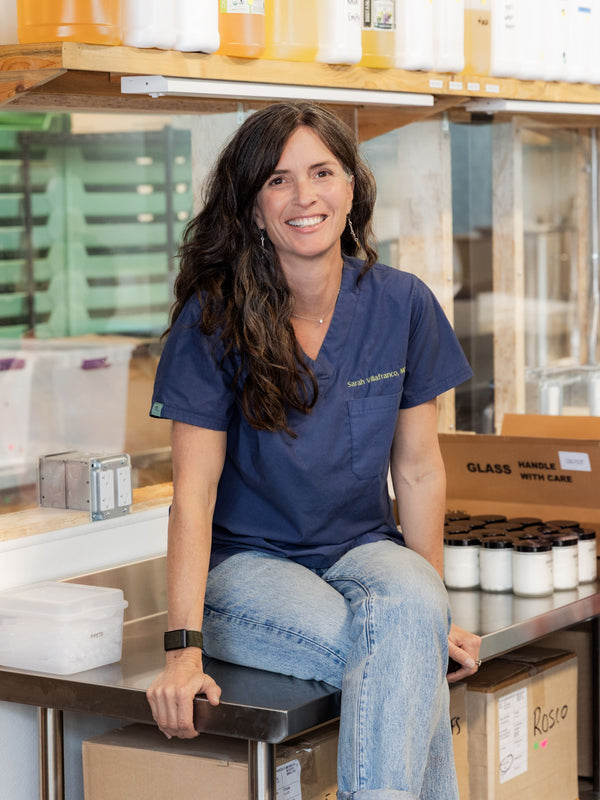After one of the many weeks I have spent in Costa Rica, where monkeys howl and waves crash and the locals envelop you in their incredible warmth, I was inspired to try making one of their customary dishes called casado. The word "casado" means "married person" in Spanish, and since I am basically married to this meal every time I visit Costa Rica, it actually makes a lot of sense to me!
While my handmade corn tortilla technique is still, um, a developing skill, and the meal looked ...rustic, it was actually super yummy—my whole family loved it. By using store bought corn tortillas and canned black beans, prep time could drop to about 15 minutes, making it a practical dish for working families, too. If it's a Sunday and you're feeling patient, try making the tortillas by hand, while chanting the following mantra: ugly tortillas are people too.
VEGETARIAN CASADO INGREDIENTS
- One bag of masa harina
- Hot water per masa harina instructions
- 2 cans of organic black beans, rinsed
- 1/4 cup vegetable broth
- 1 teaspoon ground cumin
- 1/2 teaspoon chili powder
- 1/4 teaspoon ground coriander
- 1 cup cotija cheese, crumbled (omit for a vegan meal)
- 1/2 bunch cilantro, roughly chopped
- 2 cups cooked, organic brown rice or quinoa
- 3-4 plantains
- 3 T vegetable oil of choice for sautéing
- 2 avocados
- 2 limes, one halved, one quartered
HOW TO MAKE CORN TORTILLAS
Ideally, you'll want to make the dough an hour ahead of time, and save the tortilla cooking for the last 20 minutes before the meal so they are served toasty and warm.
I used the gluten-free masa harina from Bob's Red Mill, but any masa harina flour will do if you're not super-sensitive to gluten. Masa harina corn flour that's been treated with a lime water solution to make it more digestible. Making the dough is absurdly easy: you just add warm water. The hard part comes with rolling it to the right thickness and cooking for the right amount of time, but the only way to figure it out is to start making them! Costa Rican women make these by hand, but I used parchment paper, a cutting board, and a rolling pin. Here's my technique: pull off golf-ball sized piece of dough, roll it into a little sphere, and put it between two pieces of parchment paper. Then, use the cutting board for the initial smoosh of the dough into a disc. Pull the paper away on both sides, and then use the rolling pin to roll it into a thinner disc, peeling the paper away and flipping the disc often, until you have what feels like an uncooked tortilla to you. Place the tortilla into a hot, dry cast iron skillet over medium heat and cook for 1-2 minutes per side, or as long as necessary to make you feel that you now have a cooked tortilla. Keep warm in the oven or in a tortilla warmer while you finish cooking the others. Like I said, don't be mad if the first one looks scary. They're like children—the first one is the hardest, and then you get the hang of it.
BLACK BEANS
So easy! Heat black beans on low heat with 1/4 cup of vegetable stock, a generous squeeze of lime, cumin, chili powder, and coriander. Keep warm and set aside.
PLANTAINS
Have you worked with plantains before? They're like grumpy bananas. Not as sweet, very fibrous, and harder to peel. Using a sharp knife, slice the skin along the length of the plantain in two places and peel the skin. Cut each diagonally into 1.5 inch slices. Heat vegetable oil in a skillet and add the plantain slices, sautéing for 4-5 minutes until brown on one side. Flip and brown the other side, then remove and drain on paper towels.

ASSEMBLING YOUR CASADO MEAL
Putting the dish together is much like putting paint colors on a palette. The component parts of the meal are not all heaped together but served in little, adjacent piles so you can customize each bite. It's so pleasing, really.
To assemble, spoon 1/2 cup of rice or quinoa and 1/2 cup of seasoned black beans onto a plate. Add 3-4 slices of avocado, a few tablespoons of cotija cheese, 5-6 slices of plantain, and a handful of cilantro. Place a fresh, warm tortilla in the center, and serve with a juicy wedge of lime.
As you enjoy this healthy, vegetarian meal, consider these two Costa Rican phrases that permeate their culture and infect your spirit in the most positive way. First, rather than saying hello or goodbye, they say "pura vida," which translates into their life philosophy: "A real living—to live a peaceful, simple, uncluttered life with a deep appreciation for nature, family, and friends." Second, instead of saying "de nada" for you're welcome ("it's nothing"), they say "con mucho gusto," which means "with much pleasure." These small nuances in vocabulary make a profound difference in the culture of the country, just as a small kindness can affect the whole flavor of someone's day.

With love and lumpy corn tortillas,









